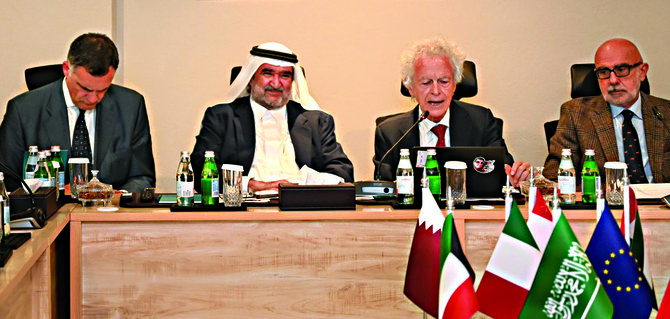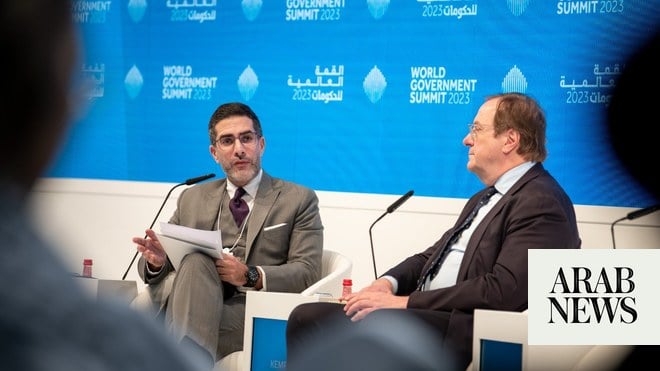
Tania Mehanna: If I can do something in my life, I want to become a journalist just to tell the story of the people who are suffering under wars
Born and raised during the Lebanese war, Mehanna was motivated by the tragedies and suffering surrounding her
RIYADH: Tania Mehanna, journalist, war correspondent, and wife of the Italian ambassador in Saudi Arabia, on Wednesday joined the Arab News team for a roundtable discussion, sharing some of her career experiences.
During 28 years of reporting, Mehanna has been a senior correspondent for the Lebanese Broadcasting Corp., and CNN’s “World Report.”
She has received multiple awards for her work and has covered conflicts in Iraq, south Lebanon, and Syria.
“If I can do something in my life, I want to become a journalist just to tell the story of the people who are suffering under wars. This is the only way we can stop what’s happening around us,” Mehanna said.
She is also an advocate for women’s rights, environmental and war crimes, and social political issues.
Born and raised during the Lebanese war, she was motivated by the tragedies and suffering surrounding her.
She noted that directly addressing the consequences of certain issues could potentially change the course of an event or yield a more favorable result.
In 1988, she began working at LBC in a male-dominated environment but volunteered to take on difficult stories and on-the-ground coverage opportunities in a bid to prove the capabilities of women journalists.
In south Lebanon, Mehanna and her film crew exposed the use of booby trap bombs and explosives and their devastating impacts on villagers, focusing on the stories of two injured locals.
After the report aired, the news team was contacted by the Lebanese government offering its help to tackle the situation.
“The army came, they did a whole survey and fenced the area, got some funding, and they started taking out the mines from this village. One story like this will make you happy for the rest of your life,” she added.
She also pointed out the risks associated with being a war correspondent. However, at times, being a female journalist worked in her favor.
While covering 9/11 protests in Pakistan in support of the late terror group leader Osama bin Laden, she was able to speak to civilians directly and get exclusive perspectives on the issue.
Mehanna said: “I could get into the houses, I could go and see the families, they would let me in, and the cameraman would stay outside. That is very important, because sometimes it opens doors for you. And men have difficulties to get that kind of trust.”
She highlighted the importance of blending in as a journalist, no matter what the location.
“You should melt in, because people that you are going to see, interview, talk about their stories, they need to feel that you are like them. When you really live what they’re living, you can write better, because you will write from the heart and soul,” she added.
During the session, she defined the role of the journalist.
“We are an intermediate to take the story from where it’s happening to those who are going to read it or watch it. The minute you become the actor of this story, you have lost your credibility,” she added.
The Arab News team shared some of their own motivators for joining the profession and discussed reporting issues.
“If you want to write a good story, you have to put some of your heart in it,” Mehanna said.












